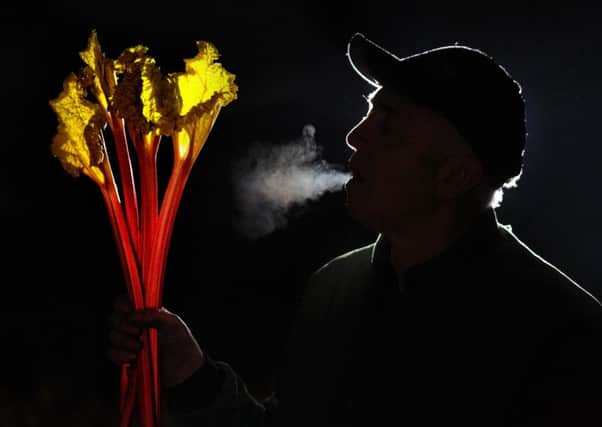Food for thought in Yorkshire over the '˜threat' of Brexit


A battle to protect the heritage of some of the region’s most famous food has begun, as preparations for ‘Brexit’ threaten the future of special protected status awarded to Swaledale ewes’ cheese, Yorkshire Wensleydale and forced rhubarb.
Businesses are concerned that years of effort to gain the EU’s Protected Geographical Indication (PGI) and Protected Designation of Origin (PDO) will be undone when the Government triggers Article 50, with wider implications for its standing across the world.
Advertisement
Hide AdAdvertisement
Hide AdWensleydale cheese makers and farmers in the renowned rhubarb triangle are in talks with Ministers over how to mitigate any adverse impact of losing the hard-fought-for recognition.
Janet Oldroyd-Hulme, whose family have been growing forced rhubarb at Oldroyd’s Farm in Carlton, Wakefield, since 1930, said: “It was the Government who did a big push on this about 10 or 15 years ago, as if it was something we suddenly needed for produce. They have to recognise that we still need it now, if not more.”
Yorkshire is home to three of the 65 products with protected status in the UK, while neighbouring North-East Lincolnshire has traditional Grimsby smoked fish. It can take years for EU recognition to be awarded, with exceptionally strict criteria.
PGIs and PDOs can also preserve traditional or specialist methods used to produce food and drink, such as the intricate, grow-in-the-dark way of making forced rhubarb. It is feared that the removal of this protection could open the floodgates for the sale of rip-off versions.
Advertisement
Hide AdAdvertisement
Hide AdDavid Hartley, managing director of Wensleydale Creamery, said: “PGI endorses the quality and authenticity of the cheese, recognising and championing all that makes it unique. It’s a key differentiator, elevating Yorkshire Wensleydale above all the other Wensleydale cheeses which are still today, produced in other counties around the UK, outside of the designated area.
“It is very important for the creamery. There is a growing domestic understanding of its importance, and the scheme it is widely recognised in international markets as a sign of quality.”
While it is understood the UK Protected Food Names Association – which represents businesses in the scheme – has held talks with the Department for the Environment, Food and Rural Affairs, a Ministry spokeswoman offered only vague assurance.
She told The Yorkshire Post: “We can be rightly proud of Yorkshire’s food and drink. The region is home to some of this country’s most iconic culinary offerings.
Advertisement
Hide AdAdvertisement
Hide Ad“We are still a member of the EU and continue to engage with EU business as normal, which means the Protected Food Names scheme remains in place. These products are extremely important to our reputation as a great food nation and we will work to ensure they continue to benefit from protection in the future.”
Both E Oldroyd and Sons and Wensleydale Creamery welcome the idea of establishing a British equivalent to the EU scheme to act as a gold standard, championing heritage and unique production to a global market.